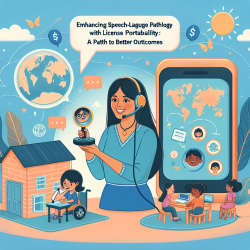Prelacteal feeding, the practice of giving newborns substances other than breast milk before breastfeeding, is prevalent in many low-income countries, including Pakistan. This cultural norm poses significant risks to neonatal health by delaying the early initiation of breastfeeding. A recent mixed-methods study published in the International Breastfeeding Journal sheds light on the social and cultural factors associated with prelacteal feeding in Pakistan. This blog post aims to help practitioners understand these factors and encourage further research to improve neonatal health outcomes.
The Prevalence and Impact of Prelacteal Feeding
The study found that 64.7% of children under two years of age in Pakistan received prelacteal feeds. The most common prelacteals were milk other than breast milk (24.5%) and honey or sugar water (21.8%). These practices contribute to delayed breastfeeding initiation and deprive neonates of the benefits of colostrum, which is crucial for building a strong immune system.
The World Health Organization (WHO) recommends initiating breastfeeding within the first hour of birth and exclusively breastfeeding for the first six months. However, cultural norms in Pakistan often prioritize prelacteal feeding over immediate breastfeeding, increasing the risk of neonatal morbidity and mortality.
Cultural and Social Factors Influencing Prelacteal Feeding
- Family Traditions: Prelacteal feeding is often seen as a family ritual where a senior family member or a virtuous individual administers the first feed to transfer their qualities to the newborn.
- Religious Beliefs: The use of honey as a prelacteal is considered a sacred tradition (Sunna) of the Holy Prophet in Islam, believed to cleanse the baby's stomach.
- Myths about Colostrum: Some mothers believe colostrum is stale or harmful and may test it with unconventional methods before deciding whether to feed it to their newborns.
- Perceived Insufficient Breast Milk: Many mothers believe that breast milk comes only after three days post-delivery, leading them to rely on prelacteals to satiate their infants.
The Role of Healthcare Facilities
The study highlighted that prelacteal feeding is more common in private health facilities compared to public ones. In some cases, hospital staff administer prelacteals without parental consent. This underscores the need for healthcare facilities to adopt policies discouraging prelacteal feeding and promoting early breastfeeding initiation.
Opportunities for Practitioners
Practitioners can play a critical role in changing these cultural norms by:
- Providing Comprehensive Antenatal Counseling: Educate expecting mothers and their families about the benefits of early breastfeeding initiation and the risks associated with prelacteal feeding.
- Engaging Community Leaders: Work with religious leaders and community influencers to address misconceptions about colostrum and promote breastfeeding as a priority.
- Implementing Policy Changes: Advocate for policies in healthcare facilities that discourage prelacteal feeding and support immediate breastfeeding post-delivery.
Conclusion
The practice of prelacteal feeding in Pakistan is deeply rooted in cultural traditions and social norms. To improve neonatal health outcomes, it is essential for practitioners to understand these factors and work towards promoting early breastfeeding initiation. By implementing research findings and engaging with communities, practitioners can help shift these practices towards healthier alternatives.
To read the original research paper, please follow this link: Prelacteal feeding practices in Pakistan: a mixed-methods study.










